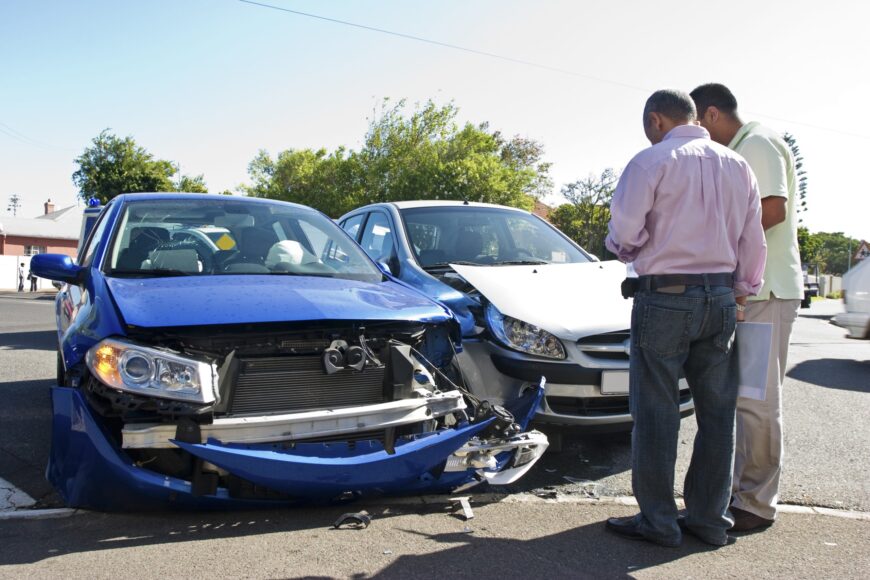After a car accident, most people expect the insurance company to simply review the evidence and pay a fair settlement. But in reality, the process is far more complicated, and at the center of it is the insurance adjuster.
Insurance adjusters play a crucial role in determining how much compensation you receive for your injuries and damages. Understanding what they do, how they evaluate claims, and what their priorities are can help you protect your rights and avoid costly mistakes during the claims process.
If you are struggling to obtain fair compensation from an insurance company, call Andy Citrin Injury Attorneys today.
What Is an Insurance Adjuster?

An insurance adjuster is the person assigned by an insurance company to investigate and evaluate your claim. They may be:
- Staff adjusters — full-time employees of the insurance company
- Independent adjusters — outside contractors hired by the insurer
- Public adjusters — professionals hired by policyholders (less common for auto claims)
In car accident cases, most adjusters you’ll deal with are staff or independent adjusters working to represent the insurance company’s interests.
The Adjuster’s Job: Protecting the Insurance Company
It’s important to understand that insurance companies are for-profit businesses. Adjusters are not neutral parties. Their job is to save the company money. They do this by:
- Investigating the accident
- Assessing damage to vehicles and property
- Reviewing your medical records and treatment
- Determining how much the company should pay on your claim
While they may seem friendly, adjusters are trained to look for reasons to reduce, delay, or deny claims.
How Adjusters Investigate a Car Accident

Once your claim is filed, the adjuster will begin gathering evidence. This may include:
- Reviewing the police report
- Interviewing drivers, passengers, and witnesses
- Examining photos or video of the crash scene and vehicle damage
- Looking at your social media activity for anything that contradicts your injury claims
- Requesting your medical records
They use this information to decide who was at fault and how much your claim is worth.
Evaluating Your Injuries and Medical Care
One of the most critical parts of your claim is the cost of your medical treatment. Adjusters will closely review:
- Hospital bills and doctors’ notes
- Diagnostic test results (X-rays, MRIs, etc.)
- Physical therapy or rehabilitation plans
- Prescription costs
They often compare your care to industry guidelines to argue that certain treatments were unnecessary or unrelated to the accident. This is one of the most common ways insurers try to lower payouts.
Valuing Property Damage

Adjusters also determine the cost of repairing or replacing your vehicle. They will:
- Inspect your car or review repair shop estimates
- Use market data to estimate your car’s pre-accident value
- Decide if your car is a total loss
If they deem your car totaled, they will offer a settlement based on its market value, which is often lower than what you paid or what you still owe on the loan.
Negotiating the Settlement
After their investigation, the adjuster will make a settlement offer. This is usually lower than what your claim is truly worth. Adjusters expect you to negotiate, and they are trained to:
- Question the severity of your injuries
- Suggest you were partially at fault
- Pressure you to accept a quick settlement before you know the full cost of your care
Remember: once you accept a settlement and sign a release, you can’t ask for more money later, even if your injuries worsen.
How to Protect Yourself When Dealing with Adjusters

Because adjusters are skilled negotiators, it’s important to approach your conversations carefully. Keep these tips in mind:
- Stick to the facts and avoid admitting fault
- Do not give a recorded statement until you’ve spoken with a lawyer
- Keep detailed records of all expenses, injuries, and communications
- Do not rush to settle until you know the full extent of your injuries
- Be polite but firm. You don’t have to accept their first offer
Treat every conversation as if it could be used as evidence in your claim.
When to Consider Hiring a personal injury attorney
If your injuries are serious or fault is disputed, consider hiring a personal injury attorney to deal with the adjuster on your behalf. An attorney can:
- Handle all communications and negotiations
- Gather medical records and expert opinions
- Calculate the full value of your claim (including future medical care and lost income)
- Push back against lowball settlement offers
Having legal representation levels the playing field and shows the insurance company that you are serious about your claim.
Common Myths About Insurance Adjusters
There are several misconceptions that can hurt your case if you believe them:
- “They’re on my side.” In reality, their loyalty is to the insurance company.
- “They’ll offer me what’s fair.” Their goal is to pay as little as possible, not what you truly deserve.
- “I have to accept their first offer.” You have the right to negotiate or reject it.
- “I don’t need documentation. They’ll believe me.” Without solid evidence, they’re unlikely to pay full value.
Knowing the truth about their role helps you protect yourself.
Insurance adjusters play a powerful role in car accident claims. They gather evidence, evaluate damages, and decide how much money the insurance company will pay. While they may seem helpful, their primary goal is to protect the company’s bottom line, not to look out for you.
By understanding how adjusters operate, documenting your losses, and seeking legal help if needed, you can navigate the claims process more confidently and work toward a fair settlement.








